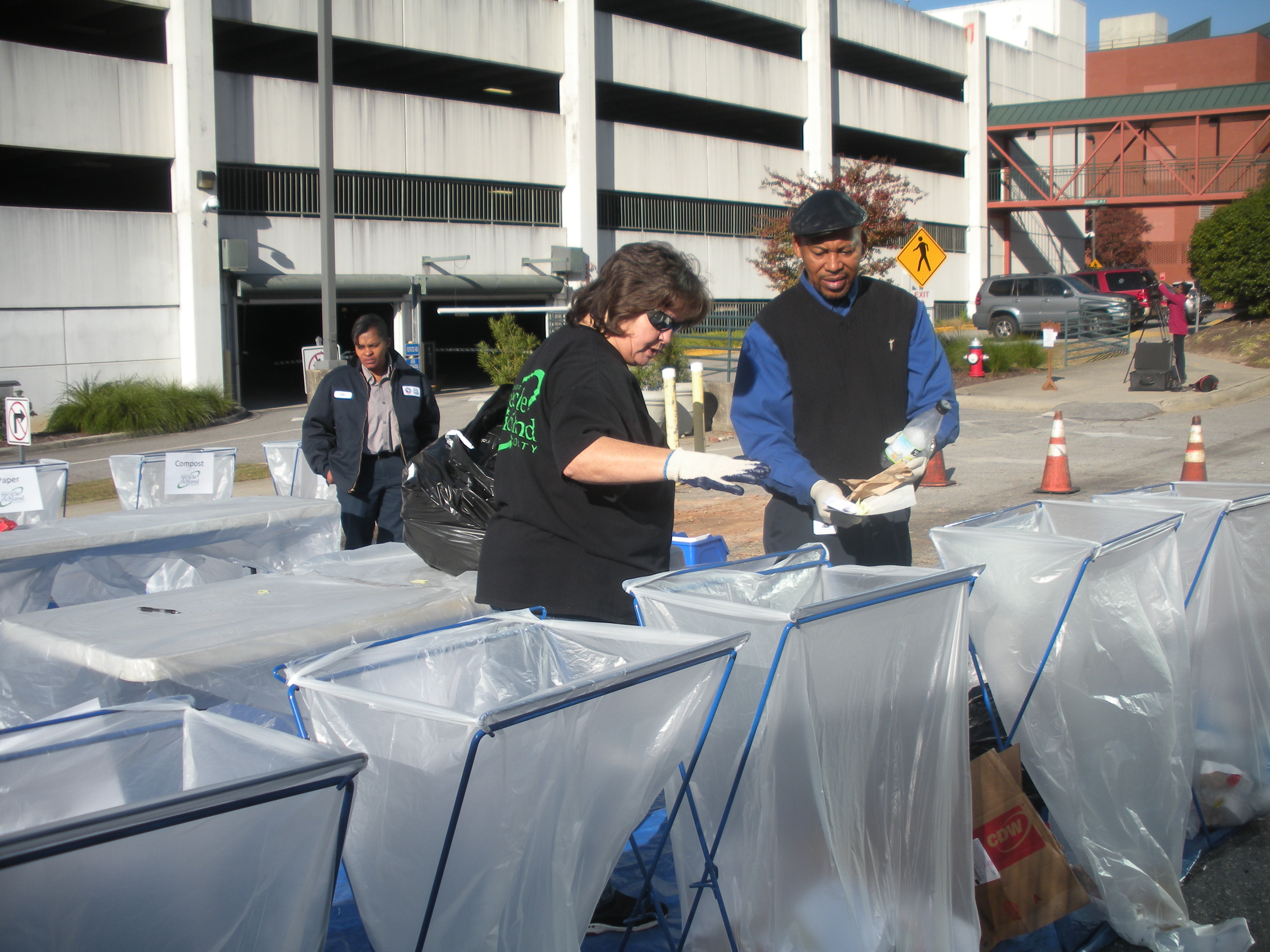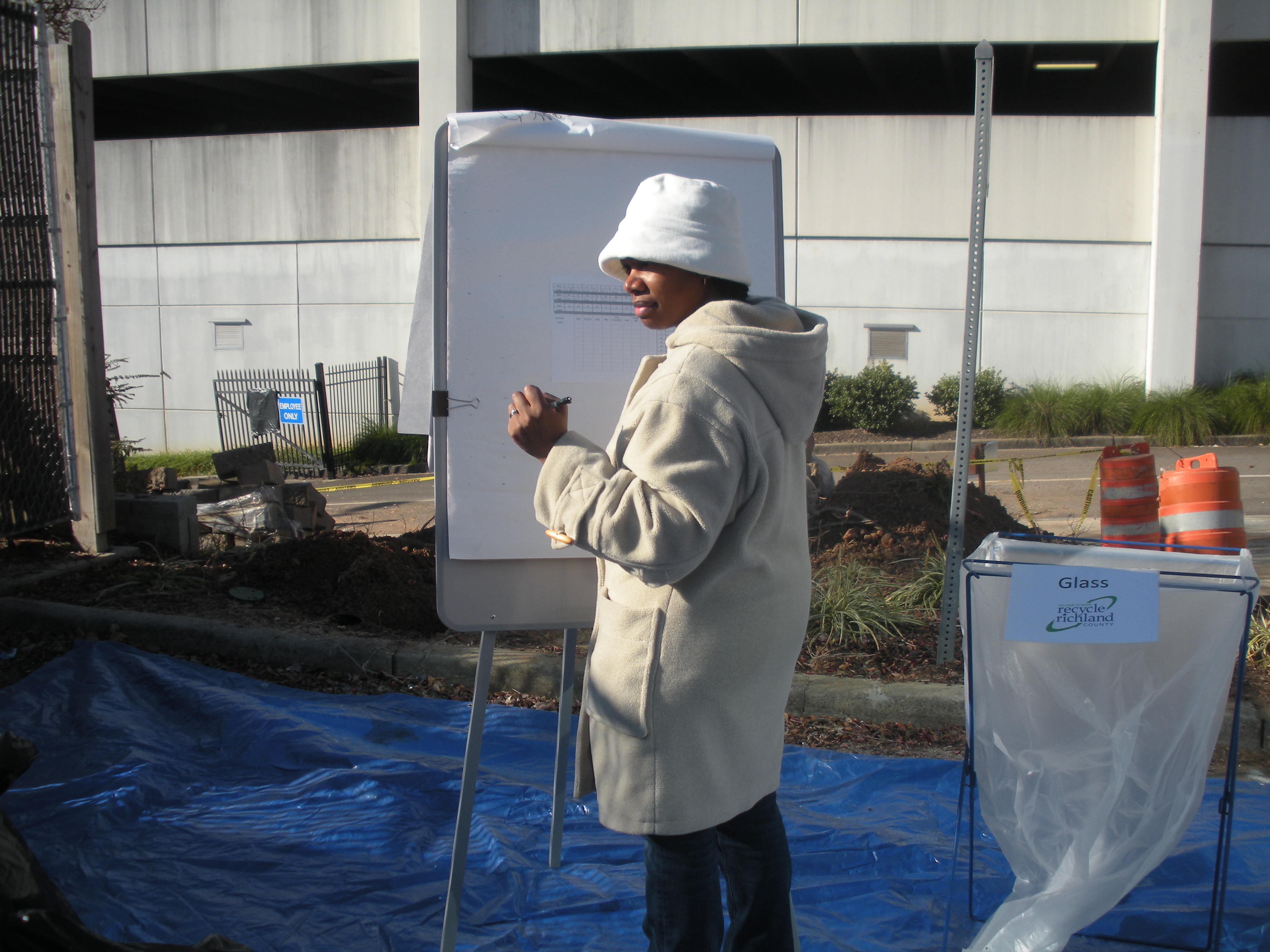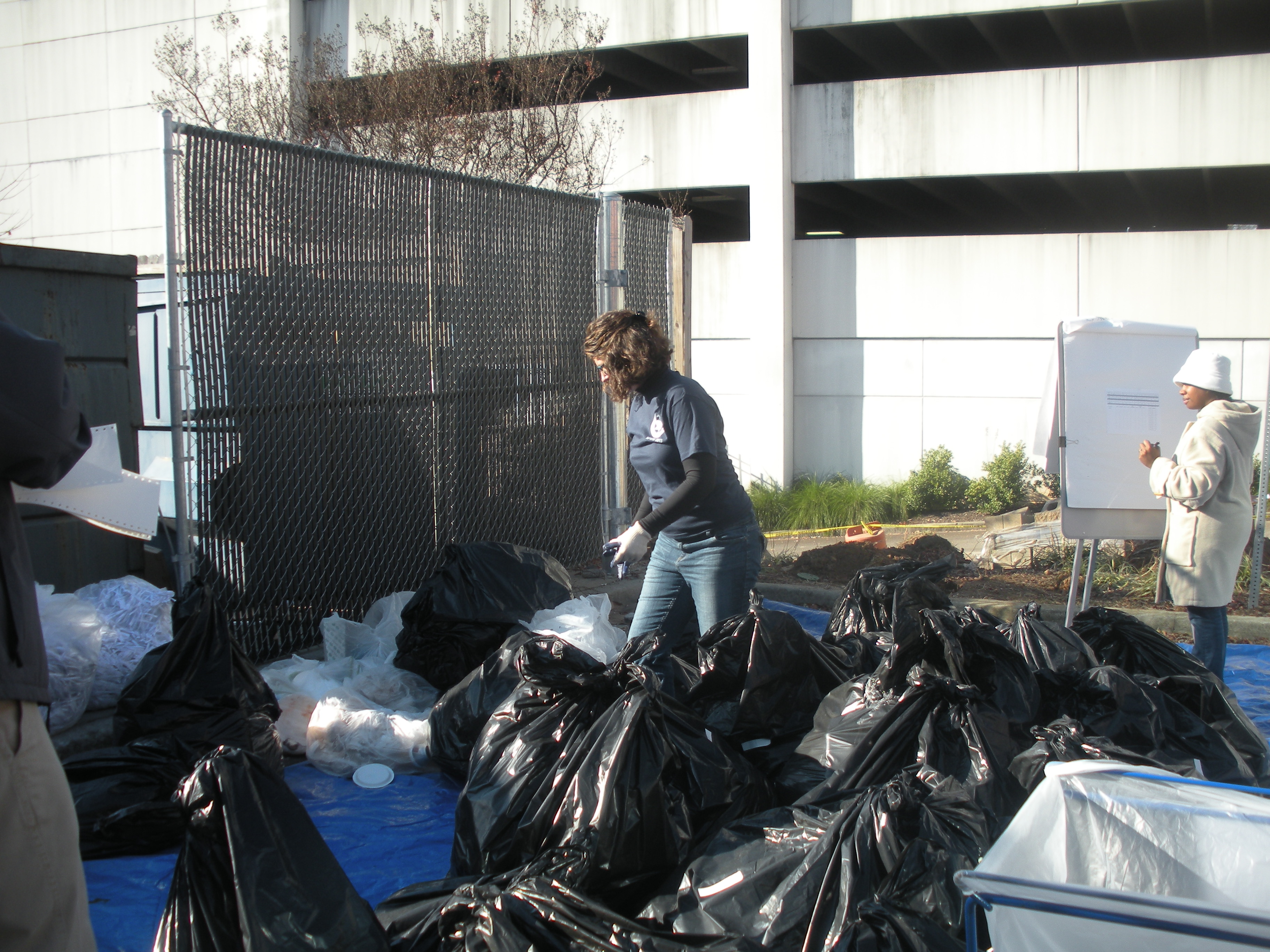
Volunteers with gloves and a strong resolve dug into several large trash bags pulled from a dumpster at the Richland County Administration Building on Thursday morning in an effort to demonstrate how much waste tossed at the facility is actually recyclable.

The first-time effort, called a waste audit, was organized by the County’s Sustainability Office and the Office of Solid Waste and Recycling.
“This audit allows us to take responsibility of the waste that we generate, and engage employees and residents in ways to reduce that material,” said Anna Lange, Richland County’s Sustainability Manager.
Volunteers, including employees, spent about four hours sorting through nearly 390 pounds of trash gathered from one day of trash collection at the building. Trash came from employee offices, an onsite cafeteria and public spaces, such as lobbies and bathrooms.

Trash was sorted into different categories of waste: recyclable, compostable and items for the landfill. The audit found that 125 pounds of the items pulled from the trash could be recycled and 125 pounds of the waste could be composted, leaving only a 3rd of the material as actual trash.
Cans, glass, paper and toner cartridges were among the items found that should have been recycled. A whole apple was among the items that should have been composted. The items collected were disposed of properly.
“The waste audit will serve as a baseline to improve our waste management practices,” Lange said. “At the County, we are always looking for ways to improve and this is a great way to engage our employees and the broader community.” The county will be expanding recycling education and access at the Administration Complex in early 2015.
Two years ago, the County expanded recycling at the Administration building, and has already reduced landfill waste in the facility by 33 percent.
Although the state’s recycling rate continues to increase, nearly 70 percent of our waste is sent to landfills. Much of that material could have been recycled. The waste audit will serve as a baseline to improve our waste management practices in county buildings and in the broader community.
On November 20th Richland County conducted a waste audit and the Administration building to determine how much of that waste is actually recyclable. A waste audit is a one day sort of the collected trash. Trash is sorted it into different categories of waste streams recyclable, compostable, and items for the landfill. “It allows us to take responsibility of the waste that we generate at work, and engage employees in ways to reduce that material.” exclaimed Anna Lange, Richland County’s Sustainability Manager. Although the state’s recycling rate continues to increase, nearly 70 percent of our waste is sent to landfills. Much of that material could have been recycled. The waste audit will serve as a baseline to improve our waste management practices in county buildings and in the broader community.
Two years ago the county expanded recycling at the Administration complex, and have reduced landfill waste in that facility by 33%. “At the county, we are always looking for ways to improve and this is a great way to engage our employees and the broader community.” Anna Lange
On November 20th Richland County conducted a waste audit and the Administration building to determine how much of that waste is actually recyclable. A waste audit is a one day sort of the collected trash. Trash is sorted it into different categories of waste streams recyclable, compostable, and items for the landfill. “It allows us to take responsibility of the waste that we generate at work, and engage employees in ways to reduce that material.” exclaimed Anna Lange, Richland County’s Sustainability Manager. Although the state’s recycling rate continues to increase, nearly 70 percent of our waste is sent to landfills. Much of that material could have been recycled. The waste audit will serve as a baseline to improve our waste management practices in county buildings and in the broader community.
Two years ago the county expanded recycling at the Administration complex, and have reduced landfill waste in that facility by 33%. “At the county, we are always looking for ways to improve and this is a great way to engage our employees and the broader community.” Anna Lange
On November 20th Richland County conducted a waste audit and the Administration building to determine how much of that waste is actually recyclable. A waste audit is a one day sort of the collected trash. Trash is sorted it into different categories of waste streams recyclable, compostable, and items for the landfill. “It allows us to take responsibility of the waste that we generate at work, and engage employees in ways to reduce that material.” exclaimed Anna Lange, Richland County’s Sustainability Manager. Although the state’s recycling rate continues to increase, nearly 70 percent of our waste is sent to landfills. Much of that material could have been recycled. The waste audit will serve as a baseline to improve our waste management practices in county buildings and in the broader community.
Two years ago the county expanded recycling at the Administration complex, and have reduced landfill waste in that facility by 33%. “At the county, we are always looking for ways to improve and this is a great way to engage our employees and the broader community.” Anna Lange
On November 20th Richland County conducted a waste audit and the Administration building to determine how much of that waste is actually recyclable. A waste audit is a one day sort of the collected trash. Trash is sorted it into different categories of waste streams recyclable, compostable, and items for the landfill. “It allows us to take responsibility of the waste that we generate at work, and engage employees in ways to reduce that material.” exclaimed Anna Lange, Richland County’s Sustainability Manager. Although the state’s recycling rate continues to increase, nearly 70 percent of our waste is sent to landfills. Much of that material could have been recycled. The waste audit will serve as a baseline to improve our waste management practices in county buildings and in the broader community.
Two years ago the county expanded recycling at the Administration complex, and have reduced landfill waste in that facility by 33%. “At the county, we are always looking for ways to improve and this is a great way to engage our employees and the broader community.” Anna Lange